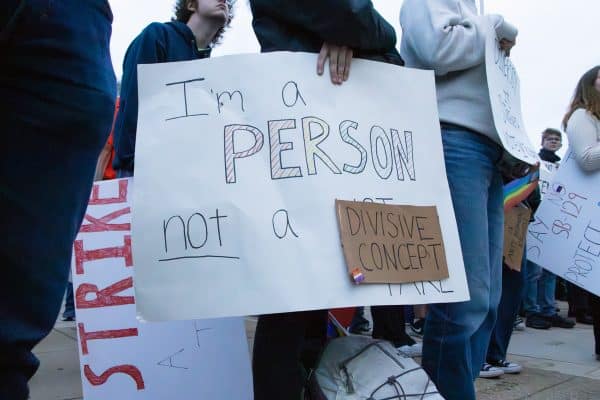Response: Feminism deserves critical thought
September 6, 2018
“Be a sponge.”
My father gave me that advice after dropping me off on my own hundreds of miles from home in Fort Worth, Texas this summer for my first internship with a major company. Exist to absorb and learn all that you can. I carry his advice with me to this day as I continue my studies at UA and develop a real set of values and opinions as a young adult. You will always benefit from learning from those around you, especially if they have a different perspective.
College is remarkable because you are given the opportunity to build the most diverse community of friends and colleagues you will ever have all within a few square miles. You are young enough to learn from those more experienced than you but old enough to question and challenge their ideas. You are also old enough to understand that concepts like feminism, government, foreign languages, religion, human development, rocket science, and basically anything else worth studying requires more than an hour of lecture and 45 minutes of article writing.
As a white woman, the feminist movement in particular profits me nothing if I do not stop and listen to the perspectives of women of color, women across the political spectrum, LGBTQ+ women, disabled women, and, yes, men.
Feminism revolves around the concept of the patriarchy, a word so deformed and taken out of context in the modern canon that it plays directly into the hands of those who want it to thrive. The patriarchal structure is nothing new. It has been around for thousands of years, still evident in power structures even in modernized countries like the United States which, for example, has had very few female presidential candidates and no female presidents despite women making up half of the population.
Though I am incredibly fortunate to be living in America where I am indeed free to vote, drive, go to school, and own property, internationally, many women do not enjoy the same basic freedoms. To discredit modern feminism because you feel that it does not serve you is a selfish disservice to those for whom it does essential work.
Feminism’s faults lie largely in misunderstanding and because we are human, it is our nature to seek out the most dramatic iterations of opposing viewpoints to make our own viewpoints seem rational by comparison. This, I suspect, is how Charles McKay, Crimson White opinion columnist, entered the Women’s Studies 200 lecture he sat in on. When we are deadlocked into our own beliefs, we refuse to learn and instead seek out what satisfies our confirmation bias.
Toxic masculinity, a central aspect of the patriarchy, is the culture that propagates mandated “toughness” for men. To be in touch with your own emotions is seen as “feminine” rather than celebrated. More men die by suicide than any other demographic in the United States because society tells them that to seek help for their distress is weakness. This, I suspect, was not covered in lecture one of WS 200.
In-depth investigation is by far my favorite aspect of college. We are encouraged, if not required, to stretch and dig and chip away at concepts until we come to the truth.
During your time at UA, I urge you to be a sponge, but more than that, I urge you to use your four years as an opportunity to learn to think for yourself. Challenge your own opinions, listen to those you disagree with or cannot relate to and come back a well-rounded person. Learn to argue, but also learn to listen more than you speak. You will never regret giving your all to an opportunity to learn.










